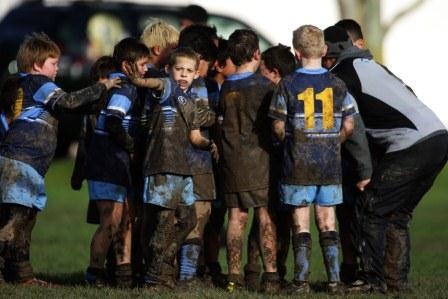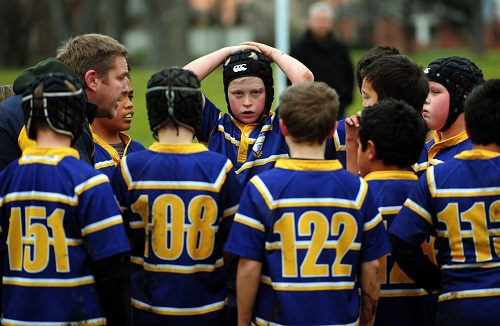- Rugby Toolbox
- Resources & Education
- Learn more
- Articles
- Snook on Coaching
- Under 11/13 – The Coaching Session
- Ruck & Run Drill
- Playing Philosophy – Ruck & Run Coaching Components
- Playing Philosophy – Spread the Forwards
- Playing Philosophy – A forward behind the ruck
- Playing Philosophy – Ruck & Run
- Playing Philosophy – An idea!
- The Breakdown
- Building Positivity [3]
- Building Positivity [2]
- Building Positivity
- Fitness and Game Related Activities
- Getting the Head Working
- Missiles are Dangerous
- Use of Video
- Winger Attacking Outside First-Five
- Player Profiling
- Selection
- Fitness Away from the Team Session
- Playing Philosophy (Pre season Prep)
- Coaching the Coaches
- The Rugby Coordinator and Pre-Season Preparation
- Why Not Use Tap Penalties More Often?
- Why Kick the Ball Down the Middle of the Field?
- Defending the 5 Metre Lineout Drive
- Scoring from the 5 Metre Lineout
- What are the Kicking Team Aiming to Achieve from Halfway Restart
- Should We Practice Scoring Tries?
- Team Culture
- Looking After Your Players
- Coach Survival Tips
- Under 11/13 – Backline Defence
- Under 11/13 – Ruck Defence
- Under 11/13 – Back Attack
- Under 13 – The Counter Attack
- Under 11/13 – The Maul
- Under 11/13 – Lineouts
- Under 11/13 – Decision Making
- Under 11/13 – Support Play
- Under 11/13 – Dive Pass and More
- Under 11/13 – Drop & Grubber Kick /Highball Catch
- Under 11/13 – Front on Tackling
- Under 11/13 – Contact – Getting Up – The Ruck
- Under 11/13 – The Coaching Session
- Under 8/10 – Using Space
- Under 8/10 – Kicking
- Under 8/10 – Contact and Picking Up the Ball
- U8/U10 Draw & Pass and Sidestep
- Under 8/10 – The Tackle
- Under 8/10 – The Coaching Session
- Under 7 – Test Your Coaching – Support Play
- Tap Pass and Swerve U7
- Ball Familiarisation; Passing & Receiving
- Activities for the Non-Contact Tackle
- Under 7 – The Coaching Session
- Coaching Teenagers – After the Ruck
- Coaching Teenagers – The Practice Session
- Coaching Teenagers – Best Practice
- Coaching Kids – Best Practice
- Plays from a Tap Penalty
- Running Plays from a 5 Man Lineout
- Driving Plays from a 5 Man Lineout
- Strike Plays at the End of the Lineout
- Back Strike Plays at the Lineout
- Wide Strike at the Scrum (2)
- Wide Strike at the Scrum
- Midfield Attack at the Scrum
- No 8 Plays at the Scrum (2)
- No 8 Plays at the Scrum
- The Cut Out Pass
- Skills to Penetrate (2)
- Skills to Penetrate
- Movements to Penetrate
- Patterns to Penetrate
- Contact and Continuity
- Keeping the Ball Alive Out Wide
- Pre Season Support Activities
- Checklist
- Understanding the game
- The Playing Philosophy
- The Lineout
- Overview
- Team Profile
- Start Now!
- Backrow
- Nine and Ten
- Rugby-related Fitness Activities
- The Psychological Edge
- Open Field Play
- Key Performance Indicators
- Improving Team Performance
- Backline Attack Concepts
- Tactics at Phase Play
- Playing Philosophy
- The ‘Stop Focus’
- Kick Attack
- Clearing the 22
- Wide Attack at Phase
- Player Focus
- Scrum Preparation
- Lineout Preparation
- Back Attack Preparation
- Sevens Preparation
- Sevens Kick Offs
- Sevens Scrum and Lineout
- Sevens Attack Patterns
- Sevens Defence
- 7's Selection and Game Planning
- Coaching and Leadership
- How the Game Evolves
- Changing Within the Game
- Learning from the Television.
- Using Tap Penalties Wisely
- Defence Drills
- Defence Drills for Tight Five
- Team Defence and TUB’ing
- Establishing Patterns from the Ruck
- Structured Phase Play
- Structuring Phase Play on the Run
- Coaching Roles
- Structuring a Close in Tackling/Defensive Session
- Coaching in Threes
- Attacking Back Play
- Kick Off Chase
- Wrap Around Back Plays
- Lineout Plans
- Looking and Learning
- Motivating Your Players
- Scrum Attack
- Refocusing the Team
- Monitoring the Progress
- Learning the Game
- Playing to the Laws
- Small is OK
- Decisions After the Tackle
- Improving Your Coaching
- Food for Thought
- More Food for Thought
- Passing & Catching
- How Ireland Nearly Beat the All Blacks
- The Progressive Coach
- Try Something New
- Encouraging Excitement
- The Mental Approach
- Where to Start
- Being the Best You Can Be
- Off the Ball Decisions
- Lineouts Difficult to Master
- Decisions on the Run
- Rucking and Rolling
- A Successful Approach
- Gaining Clarity
- Manipulation vs Physicality
- Beating the Drift
- To Ruck or Not to Ruck
- Stopping the Lineout Drive
- Fine Tuning the Planning
- It's a Running Game
- RugbySmart 2015
- Using the Shoulders
- Loosehead Prop / Tighthead Prop
- Position Specific – Hooker
- Position Specific – Lock
- Position Specific – Blindside Flanker
- Position Specific – Openside Flanker
- Position Specific – No 8
- Position Specific – Halfback
- Position Specific – First Five Eighth
- Position Specific – Second Five Eighth
- Position Specific – Centre Three-quarter
- Position Specific – Wing
- Position Specific – Fullback
Under 11/13 – The Coaching Session

Some important information:
LAWS:
Full field.
The ball size: Under 11 size 3. Under 12 & 13 size 4.
The game runs for 2 x 25 minute spells at Under 11 and 2 x 30 minutes under 12 & 13.
15 aside is the maximum number. (Games should be played with equal numbers if one team is short)
All players must play a minimum of half a game.
Kick offs are with a drop kick.
The tackle must be below the nipple. No fending to the head, face or neck.
Lineouts must have 8 players. Contesting is fine. No lifting.
Scrums must have 8 players. No contest and no pushing at under 11. Contest and pushing at Under 12 & 13. The push is limited to half a metre.
A penalty is as normal.
If no Playing Referee then there is no tackling.
Conversions not to be taken further out than the 15 metre line.
Mouthguards are compulsory.
All coaches must attend a “Playing Rugby” course held by their provincial union.
SKILLS:
- Contact
- Falling on the Ball
- Getting Up
- Front-on-Tackle
- Off-ground pass
- Dive pass
- Running in Support
- Catching the High Ball
- Drop Kick
- Grubber Kick
Techniques can be found in the Playing Rugby Handbook and at Rugby Coaching Toolbox.
PRACTICES:
Catch them – motivate them with a simple game or activity.
Coach them – select one skill and introduce the technique
Practice them – ensure the skill is reinforced through games and activities.
FUN:
Praise and encourage everyone.
Coaches should focus on participation and enjoyment.
Have as many balls as possible at training and let the kids run around with them. Score tries!!
Give players creative, positive nicknames.
Tell them they are the next Beauden Barrett or Ardie Savea.
Use a ‘awards’ system at games / trainings.
TEACHING THE SKILL:
Choose the best position for the demonstration. Consider the wind, sun, group size, sound effects…
Have the children sit or kneel and have no distractions.
Use simple language, not too many words and ask questions regularly.
Show the whole skill, then break it down in to parts, then link the parts up to show the whole skill.
Reinforce with a demonstration by creating an ‘image’ of the skill in the mind of the child.
Select the appropriate practice form with the use of grids, circuits or line formations.
Provide feedback during practice, be specific, constructive and immediate.
Remember: Players learn by
- Explanation 3%
- Demonstration 7%
- Practice 90%
THE PRACTICE SESSION
Planning is important. Maintaining a diary is invaluable as a reference point in ensuring you are continually improving and keeping things interesting.
Planning each session will ensure that it is well constructed and the players have plenty to do and learn.
Have you got your essential equipment: whistle / sufficient balls / cones / bibs.
Do the players have their mouthguards?
Do you have a suitable area that is safe?
Do you have a set time so that there are no excuses. Don’t go for more than an hour.
Break your session up in to 15 minute blocks so that the players maintain the interest.
What are the capabilities of your players? What do they need to learn?
STRUCTURE OF YOUR SESSION
Think of the word PEAS
PURPOSEFUL: make sure there is a goal
ENJOYABLE: the practice should be fun and diverse
ACTIVE: all children involved at all times
SAFE: correct technique is taught and equipment is used correctly.
Let the players know what you intend to do at the session so they feel involved and committed.
Start with a Warm up using a game or an activity that involves plenty of ball familiarisation. (15 min)
Introduce the skill and the activities to reinforce the skill (15 min)
Play modified games which will help with the skill and previous skills that have been taught. (15 min)
Have a team run with specific goals or play a game or just have a whole lot of fun activities such as relays and competitions. (15 min)